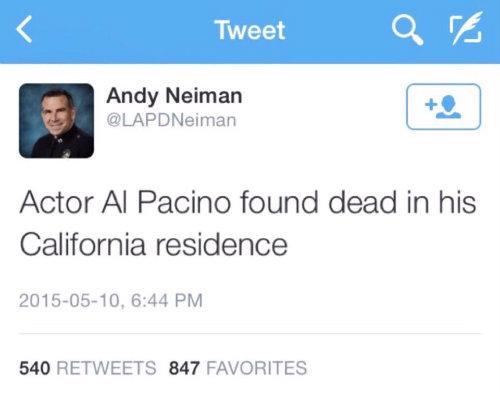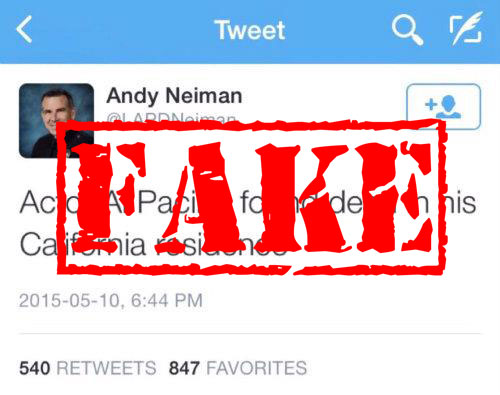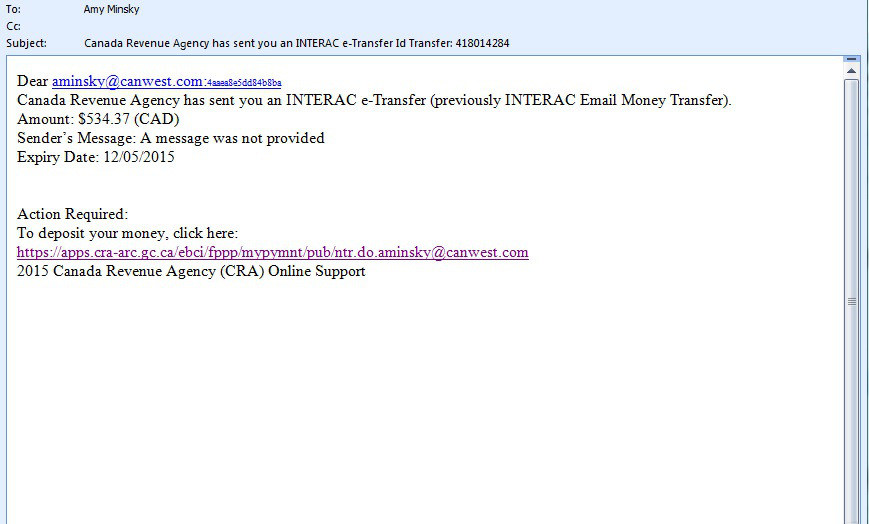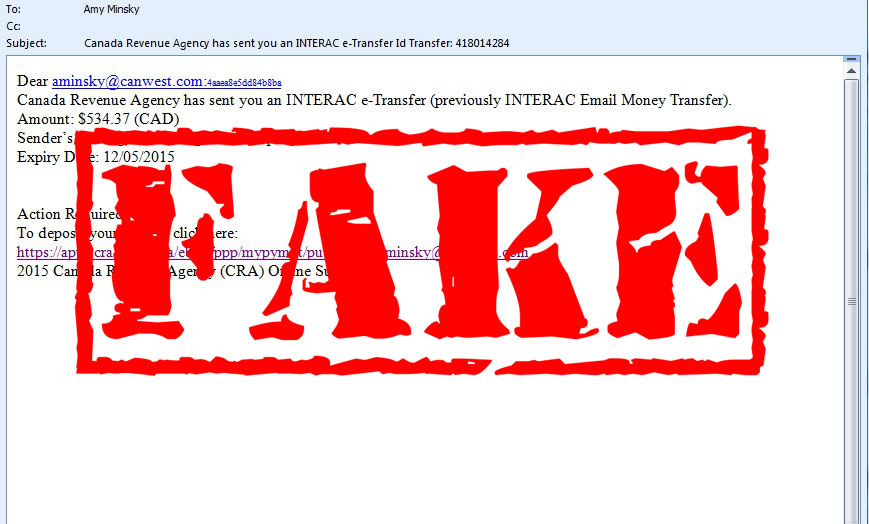Working in the online world can be a bit of a minefield — the web is full of fakes, frauds and hoaxes. Sorting through them all can be equally frustrating and entertaining. Global News spends a lot of time verifying online material, as do sites like Storyful (some even read through reams of documents, like the Verification Handbook, explaining how). What better thing to write a weekly column about?

Here’s this week in real and fake stuff on the web:
Monday: Al Pacino is not dead
Rumours of acting great Al Pacino’s death on Monday were greatly exaggerated.
An image of a tweet being shared on social media started the firestorm:

The image appeared to be a tweet from Los Angeles police offer Andy Neiman (who is real).
Then the reaction began:
The tweets were all pointing to a site called 28 Newswatch, which regularly posts fake news stories, like this:

But the tweet in question didn’t appear on Neiman’s timeline. As pointed out by the website Snopes.com, it’s probable (and likely) that the tweet was created using a site like lemmetweetthatforyou.com, that creates fake tweets, like this one:

The latest Al Pacino death rumour is undoubtedly:

Tuesday: FHRITP ID
Tuesday saw a dearth of reaction to the latest installment in the FHRITP saga.
After Shauna Hunt, a Citytv reporter, confronted a group of men about to perform the YouTube stunt while she was filming at BMO Field in Toronto, the attention shifted to the men in the video. Who were they?
Journalists began to crowdsource.
One journalist, Daniel Squizzato, tweeted his opinion about the incident:
Before the speculation began, a journalist on the thread asked who knew the individuals:

Get breaking National news
Before a Twitter user posted a potential clue:
The link was taken offline after the discussion. It now looks like this:
But a quick check of the link on Google cache reveals this:
The person on the page…

Looked remarkably similar to the man in the video:

A search for the name Shawn Simoes revealed that he did in fact work for Hydro One, and was on the Sunshine list and made over $106,000 a year.
Then this:
Another result on Google search showed a Laurier University page for Shawn Simoes. Then Laurier released a statement on Facebook.
The speculation that this was Hydro One employee Shawn Simoes was…

Wednesday: No, the CRA is not emailing you
A Global News employee received the following email this week:
The suspicious email had a random amount of money listed as the return amount. But the email looked convincing enough that it could trick some people.
Clicking through the link took the reporter here…
…a convincing-looking replica of the Canada Revenue Agency site. But this one asked for personal information that the CRA would apparently never ask for.
“The only way the CRA will communicate with you is via mail,” said Cpl. Josée Rousseau, supervisor at Canada’s anti-fraud centre.
Case closed, the email was:
Thursday: The Color Run Scam
It’s marathon season. But be careful: the Better Business Bureau (BBB) in the U.S. has issued a scam alert for the “Color 5 Mile,” a website purportedly taking registrations for a marathon where runners cover themselves in different colours of paint after completing each leg.
The concept itself is real. The Color Run is a legitimate thing:
The Color 5 Mile is not:
So if you want to pay to run while having paint thrown at you, make sure you don’t get scammed. A close inspection of the site should throw some red flags up for you, such as broken links, like the course map link on Color 5 Mile site, and a registration form that links off-site.
The BBB recommends that you check its site to verify the company’s review before paying for anything. It also says, “Check for inconsistencies in dates, times and locations. Look for misspellings or poor grammar.”
The Color 5 Mile is rife with inconsistencies. One of the most obvious: the name implies the race is 5 miles, but the description says it’s a 5k course.

















Comments
Want to discuss? Please read our Commenting Policy first.